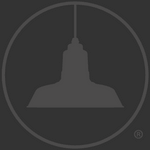- Lighting
- LED Lighting
- Quick Ship
-
Sale
Our most cost-conscious collection, capture the look you love without breaking the bank!
-
Inspiration
- Professional Login
Category Category
What is LED Lighting?
Once favored by commercial and industrial venues, LED lighting is now an affordable, stylish, and convenient option for residential spaces too. Integrating the latest LED technology directly into the shades and fixtures maximizes their performance. Because they require significantly less electricity to brighten homes and businesses than other sources of light, LED fixtures are energy efficient, environmentally friendly, and budget conscious.
What makes LED Lighting different from other options?
Typically celebrated for their efficiency, there are innumerable benefits to incorporating LED lights into homes and businesses. Unlike more traditional lighting options, LED fixtures let you control the overall look and feel of the light the modules produce. With this unprecedented versatility, LED lights are capable of performing every residential and commercial application.
LED Terminology and Features
- What are lumens? Lumens measure the brightness of the light the fixture emits; the higher the lumen package, the brighter the light.
- What is the color temperature? The color temperature determines the overall “feel” of the light — its warmth or coolness. Certain temperatures correlate with the look of incandescent bulbs, and others are reminiscent of natural lighting. Warmer color temperatures are used for ambience and general illumination in residential settings, while the cooler tones are perceived as brighter and make offices feel more productive.
- What is luminous efficacy? A measure for an LED fixture's ability to produce visible light.
- How long does LED lighting typically last? Integrated directly into the fixture, LED modules typically produce about 50,000 hours of illumination. That’s around five and a half years of continuous light!
Types of LED fixtures and Room Usage
Thanks to manufacturers like Barn Light Electric incorporating LED modules into their established shade designs, LED lights are now available in the various styles popular today. Nearly every shade and fixture can accommodate LED technology, letting these lights elevate both contemporary and traditional decors:
- LED Pendant Lights and other LED Ceiling Lighting: With mountings for indoor and outdoor usage, these ceiling lights contribute an elevated look and ample illumination. Commonly found in residential kitchens and porches and businesses like restaurants and boutique stores. Hanging in entryways or above tables, LED chandeliers make a bold statement to define a room’s aesthetic.
- Gooseneck LED Lighting: Historically used for utilitarian purposes in exterior locations, many contemporary designers incorporate these fixtures into large, open indoor spaces for extra touches of character and style. Use an LED gooseneck light as a creative choice to brighten the table in breakfast nooks, or let them fulfill their typical role of illuminating sidewalks, garages, and other outdoor spaces.
- LED Wall Sconces: Intended for undersized spaces, LED wall sconces offer space-saving profiles and plenty of style. Common in both interior and exterior settings, these fixtures welcome guests to homes on front porches, illuminate hallways, and elevate bathroom décors.
- Commercial LED lighting: LED lighting offers an energy-efficient and color accurate system that is perfect for many different commercial buildings, including retail, hospitality, museums, and restaurants. Installed in parking lots or bordering sidewalks and other walkways, LED Post Mount Lights brighten outdoor spaces to help them appear safer and more hospitable. LED sign lights accentuate corporate logos, decorative awnings, and other identifying features, along with menu boards and products on the shelves. Because LED lights offer unprecedented life spans, they substantially reduce maintenance costs and time traditionally associated with lighting.
